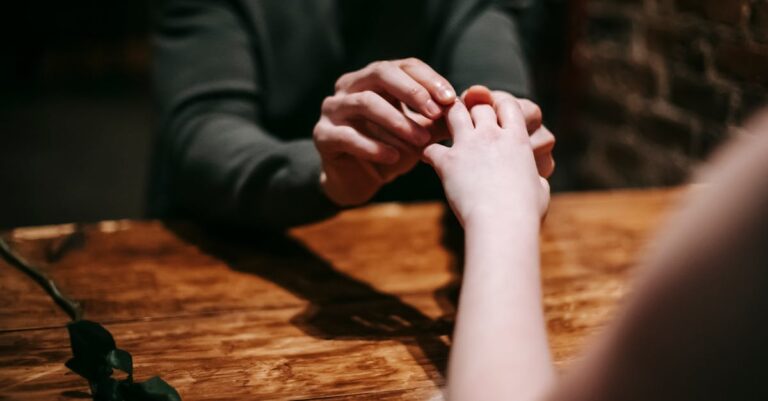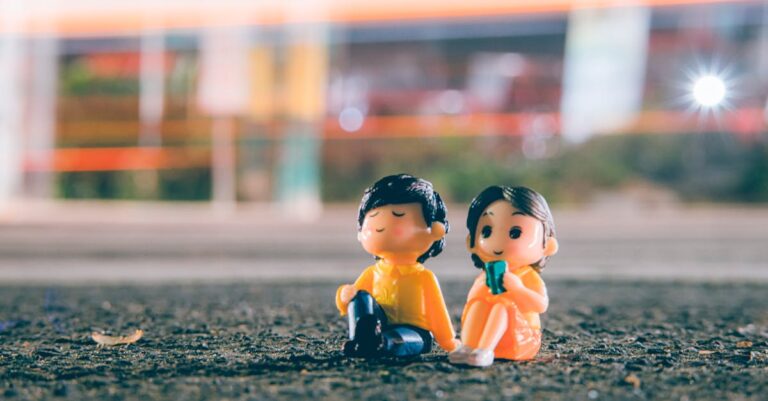
The day the storm rolled in, Clara Bennett was knee-deep in dust and deadlines, her fingers smudged with ink from cataloging books at the Willow Creek Library. The rain came without warning, a deluge that turned the gravel parking lot into a mirror of gray. She’d been waiting for the mailman, who never showed, but the storm had other plans. When the door swung open with a gust of wind, she expected a customer—or maybe the mailman, drenched and grumbling. Instead, it was him: Jordan Hale, leaning against the frame, his leather jacket soaked through, hair plastered to his forehead like ink spilled across paper.
He didn’t say anything at first. Just stood there, eyes scanning the room, taking in the stacks of novels and the scent of aged paper. Clara’s pulse quickened. She’d seen him before, of course—everyone in Willow Creek had. He was the contractor who’d moved in last spring, the one who fixed roofs and hearts with equal precision. But this was different. He looked like a man who’d walked through a storm to get here, not just the weather.
“Coffee?” she asked, more to break the silence than anything else. The words felt clumsy, but Jordan nodded, stepping inside. The door closed behind him, sealing them in the musty warmth of the library. He pulled off his jacket, revealing a faded band T-shirt, and sat at the counter. His hands were calloused, the kind that didn’t belong to someone who spent their days indoors.
“I’ve been looking for you,” he said, not looking up from the brochure he’d picked up. It was a leaflet for the town’s annual harvest festival, its edges curled from being passed around. Clara frowned. “I don’t think we’ve met.”
“We have. Last summer. You were working the farmers’ market. I bought a jar of your raspberry jam.”
She blinked. The memory surfaced—hot July air, the tang of fruit, his smile as he’d handed her the jar. She’d thought nothing of it then. Now, it felt like a thread pulling her back.
“Why now?” she asked, leaning against the counter. The silence between them was thick, charged with something unspoken. Jordan finally met her gaze, and she saw it then: the weight of a man who’d carried too much, but wasn’t ready to let it go.
“Because I’m leaving,” he said. “Tomorrow morning. I thought… I wanted to say goodbye.”
Clara’s throat tightened. She’d heard the rumors—Jordan’s sister had died last winter, and he’d been quiet ever since. The town whispered about the accident, how he’d been driving when the car skidded on black ice. But she’d never asked. Never wanted to pry.
“You’re not the only one who’s left things unsaid,” she replied, her voice steady despite the ache in her chest. Jordan’s eyes flickered, and for a moment, she thought he might leave. But he stayed, staring at the brochure like it held the answer to something.
The storm raged outside, but inside, the library felt suspended. Clara watched as he traced the festival dates with his finger, his movements slow, deliberate. She wanted to ask him about the accident, about his sister, about why he’d come back now. But the words stuck. Instead, she reached for the coffee pot, pouring two cups until they overflowed.
“Stay,” she said, not looking at him. “Just… stay one more day.”
Jordan didn’t respond immediately. The silence stretched, heavy with unspoken fears. Then, finally, he nodded. “Okay.”
That night, they sat on the library steps, the rain still falling in sheets. Clara had brought a blanket, and they shared it, shoulders brushing as they watched the storm. Jordan spoke about his sister—how she’d loved the harvest festival, how she’d painted the town’s bulletin board every year. Clara listened, her heart aching for the loss he carried. When he finished, he turned to her, eyes searching.
“Why did you come back?” she asked, her voice barely audible over the rain.
He hesitated. “I don’t know. Maybe I needed to see if… if things could be different.”
Clara smiled, but it didn’t reach her eyes. “They can be. But you have to stay long enough to find out.”
The next morning, the storm had passed, leaving the town glistening. Clara found Jordan in the library’s garden, kneeling in the dirt, planting a row of marigolds. The scent of soil and rain hung in the air, mingling with the distant sound of a church bell. She joined him, her hands digging into the earth as they worked in silence.
“I’m not ready to leave,” he admitted, his voice low. “Not yet.”
Clara didn’t look up. “Good. Because I’m not ready to lose you either.”
They planted until the sun broke through, casting golden light over the garden. The marigolds were a bright burst of color, defiant against the gray. Clara knew the road ahead wouldn’t be easy—Jordan’s past was still a shadow, and her own fears lingered like unspoken words. But for the first time in a long while, she felt something shift, like the earth itself had softened under her feet.
That evening, the harvest festival began. The town square was alive with music and laughter, the air thick with the smell of apple cider and roasted corn. Clara stood near the edge, watching as Jordan joined a group of locals, his laughter mingling with theirs. She felt a pang of something—longing, maybe, or hope. When he caught her eye, he smiled, and she knew then that this was just the beginning.
The festival ended late, but Clara didn’t leave. She stayed until the last lantern was lit, its glow casting flickering shadows on the cobblestone path. Jordan joined her, his hand finding hers in the dark. They didn’t speak, but the silence was enough. In that moment, with the town asleep around them and the stars blinking above, Clara knew: some things were worth waiting for.


